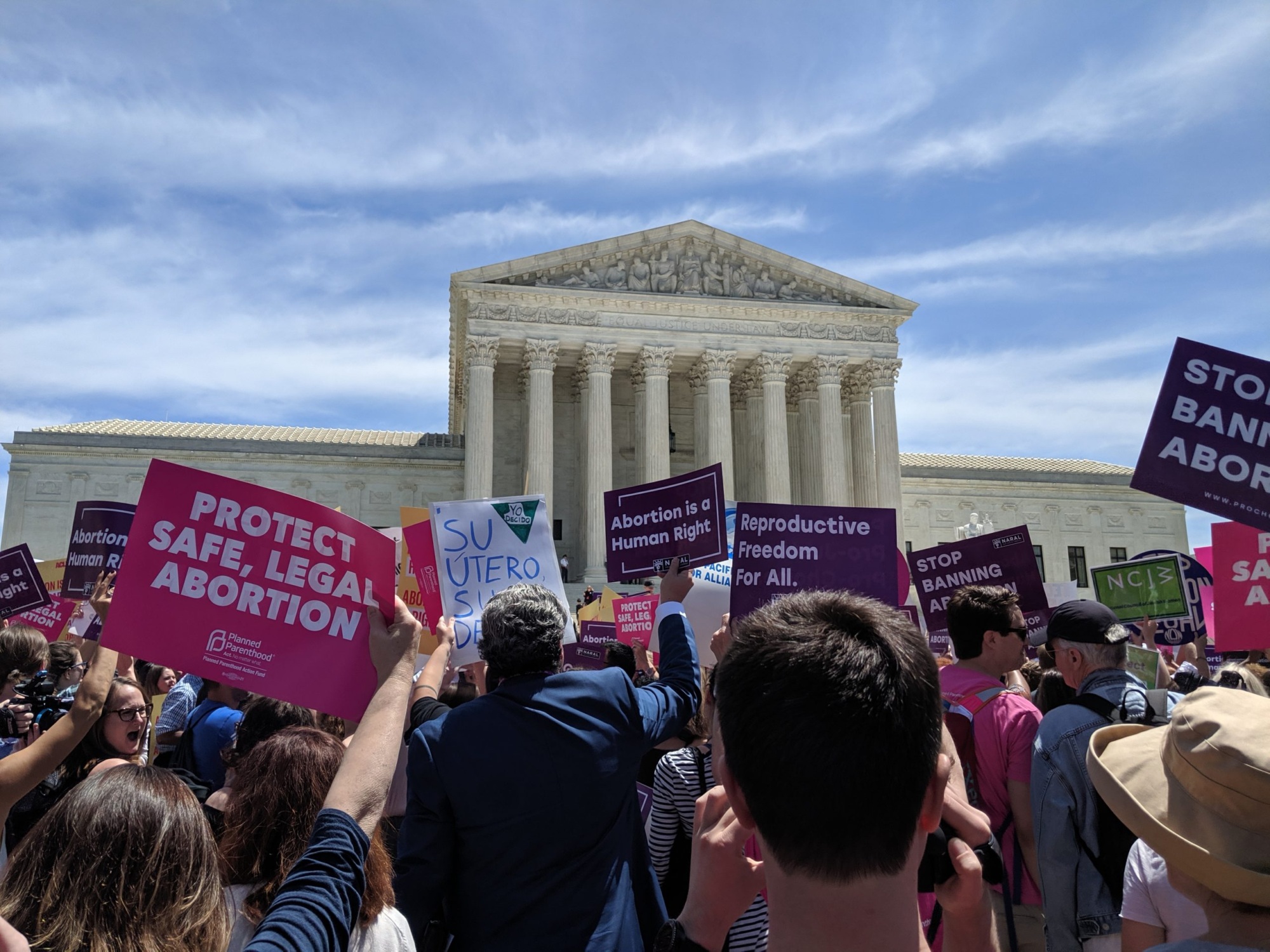#StoptheBans: Courts’ Role in Blocking Anti-Choice Attacks

We are currently witnessing an unprecedented attack on women’s reproductive rights in the United States, one that has materialized on two fronts: the proliferation of more aggressive attempts to ban abortion procedures at the state level, and the nomination and confirmation of growing numbers of anti-choice federal judges. Clearly, the two are related, and they pose an existential threat to reproductive rights as we know them.
On April 11, Ohio became the most recent state to ban abortions as early as six weeks into a pregnancy – a time frame in which many women have not missed a period and cannot know that they are pregnant. In fact, legislators in at least fifteen states have introduced such laws (Florida, Georgia, Illinois, Kentucky, Louisiana, Maryland, Minnesota, Mississippi, Missouri, New York, Ohio, South Carolina, Tennessee, Texas, and West Virginia). Texas even introduced legislation that would make a woman who has an abortion eligible for the death penalty, without exceptions for rape or incest.
These state-level bans are only some of the most recent efforts to dismantle the right to abortion and access to reproductive care. Just this month, the Senate Judiciary Committee held a hearing titled “Abortion Until Birth: The Need to Pass the Pain-Capable Unborn Child Protection Act,” which provided a platform for anti-abortion senators and witnesses to advocate for a federal law that would ban abortion after 20 weeks. President Trump has also issued global and domestic gag rules, blocked immigrant minors in detention from accessing reproductive care, allowed medical professionals to refuse to provide reproductive and contraceptive care based on “conscientious objections,” and engaged in a process to eliminate anti-discrimination protections under the Affordable Care Act (ACA) for women who have terminated a pregnancy.
The rights of women to make decisions about their own bodies and futures is in extreme jeopardy, and this anti-abortion wave has only intensified since Trump nominated and the Senate confirmed two anti-choice justices to the Supreme Court, Neil Gorsuch and Brett Kavanaugh. Conservatives are now confident that five justices will vote to overturn, or at least severely erode, critical reproductive rights, and conservative legislatures are becoming more brazen in the laws they are passing.
The moderately reassuring news up until now has been that efforts to undermine a woman’s right to abortion care, like those in Ohio, have been struck down in federal courts. The recent bans are flagrantly unconstitutional, since abortion is allowed under Roe v. Wade until a fetus is viable. As a result, ban after ban that has come before a federal court has been blocked, including those that had passed in North Dakota, Iowa and Kentucky. Reproductive rights advocates have announced plans to file challenges against similar legislation passed in Ohio and Mississippi. In addition, challenges have succeeded or been allowed to proceed in Louisiana, Ohio, Texas, and Alabama; these challenges will fight laws banning the safest procedure for women who need an abortion after the second trimester.
But whether our justice system can withstand vicious and outrageous attacks on women’s constitutional rights much longer depends largely on another factor: the appointment of fair and unbiased jurists to the federal courts. And on this front the threat is real and growing.
From the first moments of his campaign, Trump promised to nominate only jurists who will overturn our constitutional right to have an abortion. Since taking office, Trump and his conservative allies have fulfilled this pledge by tapping into a thriving cesspool of ideologues dedicated to stripping women across the country of their constitutional right to control their reproductive health care. Many of these people have been installed in lifetime seats on the federal bench, where they will be ruling in cases directly impacting women for decades.
Recently, the Sixth Circuit (which covers Ohio, Michigan, Tennessee and Kentucky) decided Planned Parenthood of Greater Ohio v. Hodges and held that Ohio could eliminate state funding for Planned Parenthood. Four Trump nominees (Joan Larsen, Amul Thapar, John Nalbandian, and John Bush) made the difference in upholding the state’s decision to take away funding for critical health services. Notably, both Larsen and Thapar – along with another judge in the majority, Raymond Kethledge – are on the President’s short list for a next Supreme Court vacancy.
In coming weeks, the Senate is expected to vote on additional nominees to our federal courts. Many of these nominees pose extreme threats to the future of reproductive rights in the United States. One of these is Wendy Vitter, a nominee for the federal court in New Orleans. Vitter urged supporters to distribute materials that claimed abortion services are a cause of breast cancer and that birth control pills “kill” and make a woman more likely to be the victim of violent assault and murder. Vitter also publicly lauded how Texas has “led the nation in some very pro-life, restrictive laws,” and how anti-choice activists “are making great strides in making it very difficult to get abortions in Texas.”
Fortunately, to date, many federal judges have properly enforced our Constitution and blocked the most direct assaults on women’s rights. But with Gorsuch and Kavanaugh on the Supreme Court and a wave of anti-choice lower judges recently confirmed and in the pipeline, the future remains in doubt.
Without fair-minded judges on the federal bench, we will see an increase in unjust decisions like the Sixth Circuit Planned Parenthood case, and potentially even see the demise of landmark precedent like Roe v. Wade. We must push back against Trump’s efforts to pack the courts with anti-choice judges or we will be forced to watch as women’s constitutional rights are dismantled.
